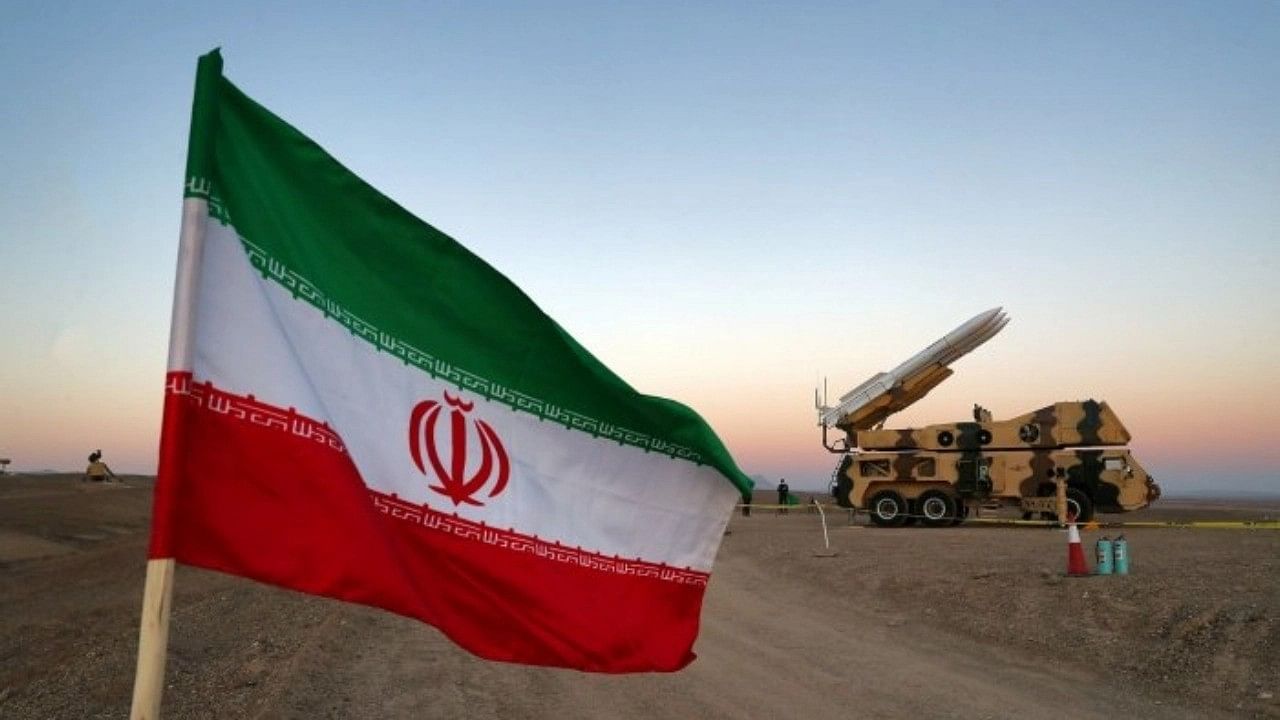
Iran flag. (Image for representation only)
Credit: Reuters File Photo
All government agencies and offices were closed Wednesday in Tehran, Iran, and in 13 provinces, including some along the western and eastern borders, hours for government offices were limited to 6:00 am to 10:00 am
Iran also issued a notice to civilian aviation, warning that "gunfire will take place" for several hours Wednesday night and into Thursday over parts of the country.
As Iran prepares to follow through on its vow to "severely punish" Israel for assassinating Hamas leader Ismail Haniyeh in Tehran last week, it is raising war jitters among the public. Yet, there are few if any signs on the streets of Tehran and other cities that a conflict may be looming.
The government said the shutdown Wednesday was merely because of extreme heat (the temperature in Tehran was expected to reach 108 Wednesday) and that the closures of airspace were for military exercises.
But the explanations belie the statements from officials that, as the acting foreign minister, Ali Bagheri, told state media Tuesday, "Iran's response will be definitive and severe."
While the time and scope of Iran's response remain unclear -- whether it will act alone or in coordination with regional militias like Hezbollah in Lebanon and the Houthis in Yemen -- the disconnect between the escalating rhetoric and the nonchalance about preparing the public is striking.
"We are in the dark, clinging to news programs on satellite television to figure out what is happening because our officials are not telling us anything," said Maliheh, 66, a retiree in Tehran. Like others interviewed by telephone for this article, she asked that her surname be withheld for fear of retribution by authorities.
The government has not issued any directives about what citizens should do if Israel responds with counterstrikes: no temporary shelters, no air raid drills, no warnings to stock up on emergency supplies and no contingency plans for hospitals in the event of a strike.
"The answer is nothing, zero," said Ehsan, a 41-year-old business owner in Tehran, when asked if he had heard of any public safety instructions. "The people are an afterthought in our country."
On social media and in interviews in several different cities, Iranians said they were anxious and confused.
"The situation is beyond our tolerance," said Parisa, 37-year-old artist in Tehran. "Many people who never wanted to leave the country are now thinking about immigration. Everyone is sad, aggressive and worried."
But some others questioned whether the war chatter was justified, doubting that an Israeli counterstrike to whatever Iran decides to do would disrupt daily routines or critical services such as electricity and water.
Mostafa, a 36-year-old computer engineer in Rasht, a city in northwest Iran, criticized the government's support for militant groups in the region, saying it placed Iran in Israel's crosshairs. Still, Mostafa said, he did not believe an all-out war was coming. "It will be a remote war and in the form of destroying specific targets," he said. "So, I am not that worried."
Others said they were already emotionally exhausted from months of tumultuous events, each enough on its own to unnerve a nation, including a terrorist attack claimed by the Islamic State group that killed over 200 people; exchanges of missile strikes with neighboring countries; nearly going to the brink of war with the US and Israel; and the death of the president and foreign minister in a helicopter crash.
In the past week, the already battered currency plunged anew against the dollar while the stock market tumbled.
"We are just sick and tired of waking up every day to news that someone died, something blew up, the price of the dollar went up, and recently we have to worry about going to war every few months," said Behdad, 39-year-old businessperson in Tehran, who said his import-export business was suffering as a result.
Domestic challenges have also roiled the nation.
A widely circulated video showing female police officers beating two teenage girls and dragging them into a van because they were not wearing the hijab has sparked outrage. Many Iranians are calling for the newly elected reformist president, Masoud Pezeshkian, to fulfill his campaign promise to women and end enforcement of the mandatory hijab. (The video was shot in late June, before the presidential election.)
Lone voices have emerged among political analysts cautioning against heading into a conflict that could quickly spin out of control. Ahmad Zeidabadi, a reformist, said in a post on Telegram that while Israeli analysts and journalists openly debated the various consequences of a confrontation with Iran, nobody in Iran dared offer a similar honest reckoning and risk assessment.
"If someone says just one word -- 'Be careful and be cautious, and don't jump in the water recklessly' -- he would be ambushed and accused of supporting Zionism and being in cahoots with America," Zeidabadi wrote.